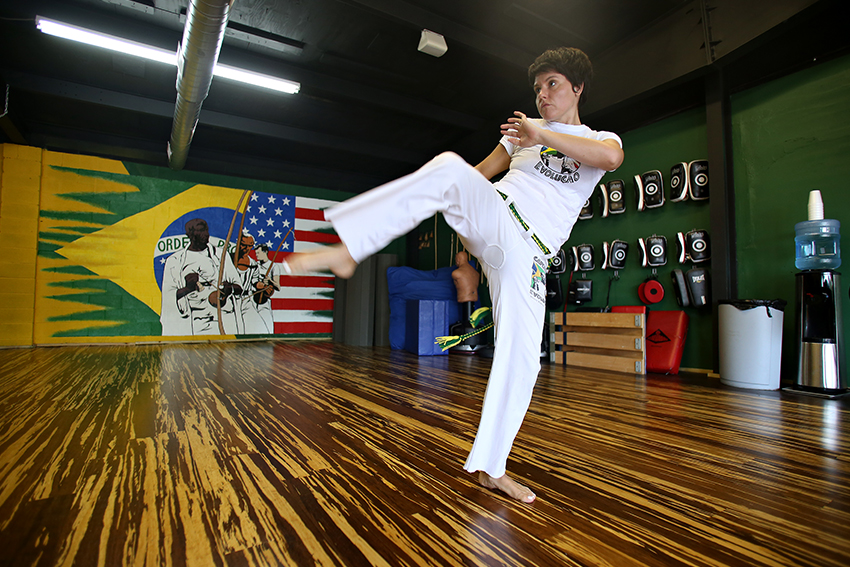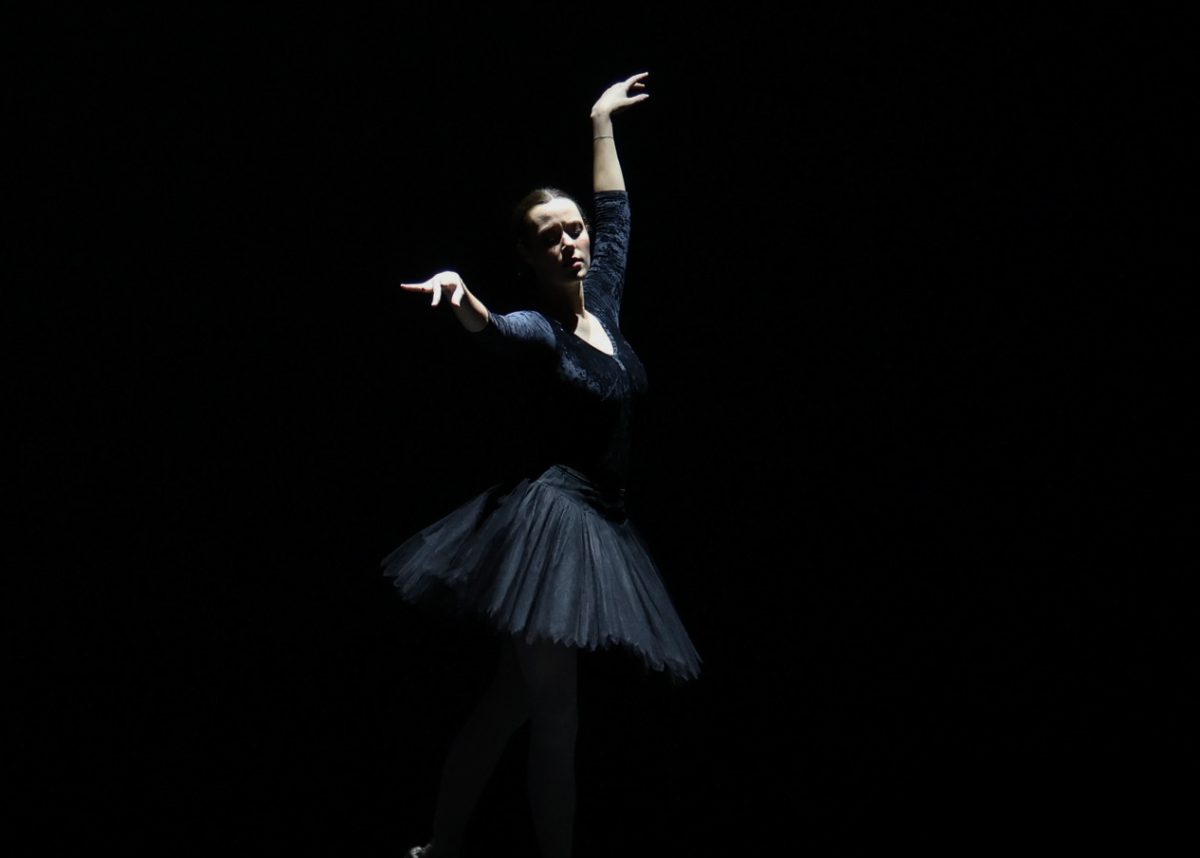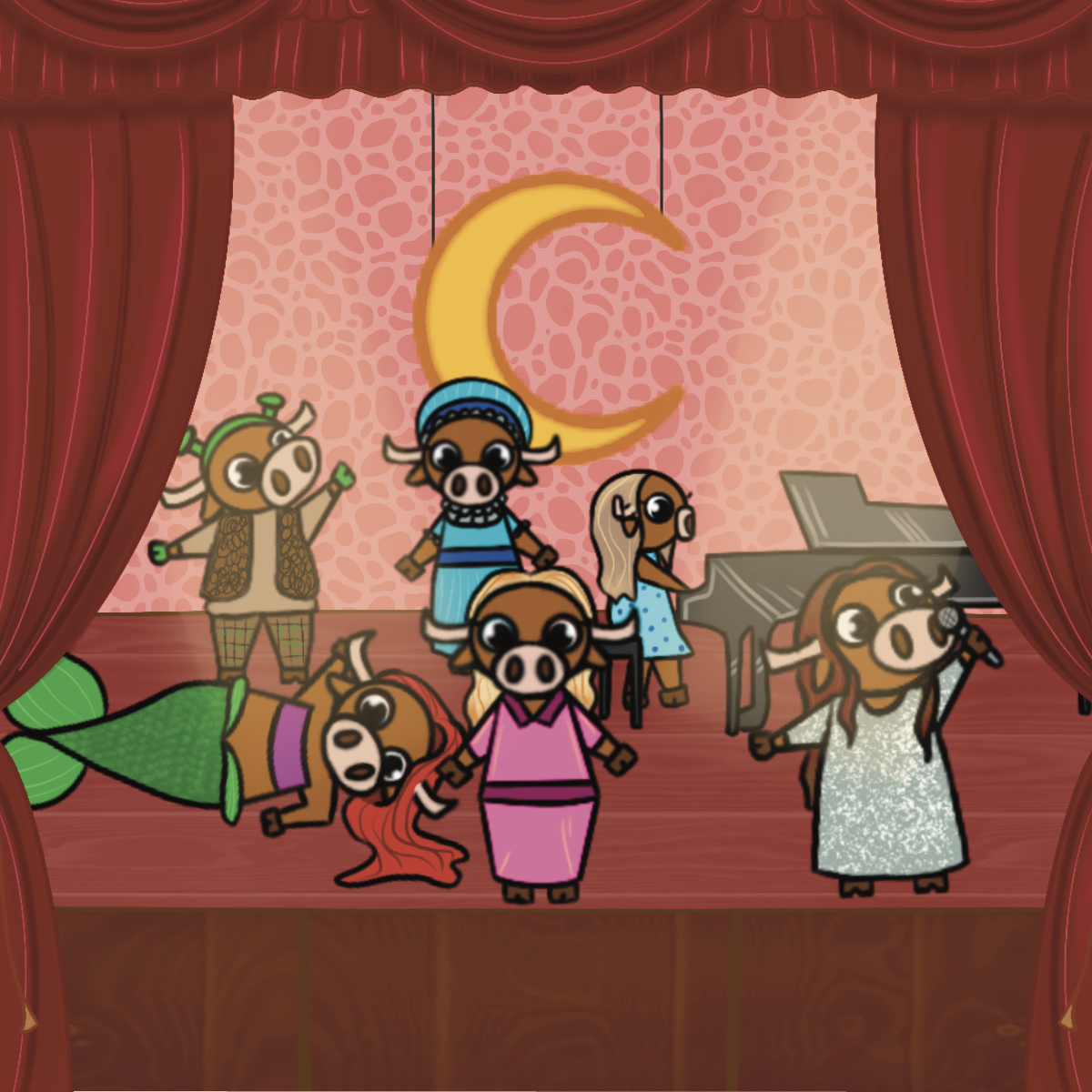Raised in a conservative Christian household, Amanda Caroline was out of touch with her Afro-Brazilian roots. But after studying abroad in Salvador Bahia, Brazil, Caroline found her passion in martial arts.
Caroline, a Ph.D. student in African and African diaspora studies, practices capoeira, an Afro-Brazilian martial art “played” by two capoeiristas who are surrounded by people singing and playing music in a circle, or “roda.” Although capoeira is referred to as a “jogo,” or game, it was historically created as an illicit art by black slaves in Brazil.
“Capoeira has a lot of historical significance for black people in Brazil,” Caroline said. “Because of its history, it was created as a disguise of warfare but also a communal space for community and spirituality. All these things combined make a very powerful art.”
Capoeira mixes aerobics with quick moves such as spins and kicks without physical contact, while the people who are surrounding the “jogo” sing in Portuguese and play instruments.
Caroline, who moved from São Paulo, Brazil to Massachusetts when she was six years old, said capoeira is known to be a male-dominated sport, but that she overcame the gender barrier and excelled in her physical training at Austin’s Capoeira Luanda.
“They train with us just like if we were guys,” Caroline said. “They go easy on me not because I’m a woman, but because I’m at a lower level. The day that I learn how to play, they’ll play with me full board.”
UT alumna Quentishia Guy was introduced to capoeira when she was studying abroad in Rio de Janeiro. Most of the members in her local training center, Capoeira Evoluçao, are male. But even though she was one of the few girls in her class, her instructor convinced her to stay in 2013 despite the added challenge.
“I tried it for about a week, and there were lots of things that I couldn’t do,” Guy said. “The day I thought it was going to be my last, one of the instructors challenged me and said, ‘If you were a baby and you were walking and falling, did you keep crawling for the rest of your life or did you keep walking?’ So I just kept on going throughout the years.”
After doing a project on the Brazilian music scene in Austin, UT alumna Brittany Schulze found herself becoming more interested in capoeira. Schulze, also a member of Capoeira Evoluçao, said capoeira is still a male-dominated sport, but she sees a lot of women who attend regularly in her training center, including an all-girls class.
“Historically all of the ‘mestres’ are male,” Schulze said. “In the songs, you don’t hear much about women, but women are rising the ranks in capoeira.”
Schulze said that capoeira built her strength physically, emotionally and mentally after she gave birth to her son and suffered from gestational diabetes, a disease that can develop during pregnancy.
“It makes me feel really strong, but at the same time, it’s a way to express myself creatively,” Schulze said. “The music is really alive and gives you a lot of energy. It helps you to keep going and keep training and keep playing the game.”
Even though there is no physical contact during “jogo,” Caroline said she still learns how to use her body as a powerful weapon, given the intense physical training of martial arts.
“I’m a woman, I’m 5’2”, I get constantly harassed by men,” Caroline said. “With capoeira, you can kick a weapon out of someone’s hand. But the ‘game’ is a very spiritual practice. You’re taking care of yourself holistically in a joyful and uplifting way.”





















